Have you ever walked into a house and immediately felt stressed, while another home makes you feel peaceful and welcome? This isn't just a random feeling; it's about the energy quality of the space. How your home is arranged and decorated can either help your well-being or create stress and energy blocks without you knowing it. This is where the ancient practice of Feng Shui comes in, which focuses on the flow of Chi, or life energy. When Chi flows smoothly, a home feels balanced and supportive. When it gets blocked or messy, it can create negative energy that affects your health, money, and relationships. This guide explains the most important feng shui things to avoid in a house, from big structural problems to simple decorating mistakes, and gives you practical solutions to create better energy in your living space.
Major Structural Problems

When choosing a property to buy or rent, some basic issues are very hard to fix and can have long-lasting negative effects. Paying attention to these during your search can save you from long-term energy problems.
-
The T-Junction Problem: A house located at the very end of a T-junction gets hit with the full force of energy coming from the road. This aggressive, fast-moving energy, called Sha Chi, is like having car headlights constantly pointed at your front door. It can cause instability, stress, and a feeling of being under constant attack. If you already live in such a home, a common solution is to place a barrier like a hedge, a solid fence, or a convex Bagua mirror on the outside facing the road to redirect the harsh energy.
-
"Poison Arrows" from Sharp Corners: Sharp corners from nearby buildings, rooflines, or even large utility poles pointed directly at your home create "poison arrows." This cutting energy is a form of Sha Chi that can negatively affect the health and luck of the people living in the part of the house being "hit." To fix this, you can use smart landscaping (like a tall tree) to block the sharp angle or hang a wind chime or crystal in the window that faces the problem structure to scatter the energy.
-
A Sloping Property: A home's stability is very important. A house built on a steep slope can create a feeling of unease and instability. The most problematic setup is when the land slopes downward away from the front door. This is thought to cause wealth, opportunities, and good fortune to roll away from the home. If the slope is behind the house, it can mean a lack of support. While major landscaping is often needed to truly fix this, strengthening the front entrance with strong lighting and healthy plants can help anchor the home's energy.
-
Irregular or Missing Corners: Perfect homes are square or rectangular, as this shape represents completeness and balance. L-shaped, U-shaped, or other irregularly shaped houses have "missing corners." When you place a Bagua map—the energy grid of Feng Shui—onto your floor plan, a missing corner means a specific area of your life lacks support. For example, a missing corner in the Southeast (Wealth) area could relate to money struggles, while a missing corner in the Southwest (Relationships) could affect partnerships. A cure involves energetically "completing" the corner by placing a bright light, a mirror, or an important object on the walls of the missing area to expand the energy outward.
Protecting the Mouth of Chi
The front door is the single most important feature in Feng Shui. It is the "Mouth of Chi," where all primary energy and opportunity enter your home. Keeping it clear, working well, and well-maintained is a high-impact way to improve your home's energy.
-
Blockage is Bad: Avoid any form of clutter at your entrance, both inside and out. Do not let trash cans, recycling bins, dead plants, or piles of shoes block the pathway. This physically and energetically stops good Chi from entering. Instead, create a wide, welcoming path. Make sure the entryway is well-lit and decorated with healthy, vibrant plants to attract positive energy.
-
The Direct Energy Leak: One of the most common and significant feng shui things to avoid in a house is a front door that lines up directly with a back door or a large window. This creates a powerful, straight-line energy current that causes Chi to rush in the front and immediately exit through the back. This means opportunities, wealth, and positive energy don't have a chance to circulate and nourish the home. To fix this, you must slow the Chi down. Place a physical barrier like a decorative screen, a large potted plant, or a round entry table between the two points. Hanging a multi-sided crystal ball from the ceiling halfway between the door and window is another classic cure to scatter the energy.
-
A Mirror Facing the Door: Placing a mirror directly facing the front door is a classic Feng Shui mistake. It reflects all the good energy that is trying to enter your home and pushes it right back outside. This includes opportunities, visitors, and prosperity. Instead, place the mirror on a wall perpendicular to the door. This allows it to draw in light and energy and expand the space without rejecting the incoming Chi.
-
A Squeaky or Sticking Door: Your front door should open smoothly, quietly, and fully (to at least 90 degrees). A door that squeaks, gets stuck, or can't open all the way represents obstacles, struggles, and missed opportunities in your life. It suggests that you must fight to get things done. The fix is simple but powerful: oil the hinges, adjust the hardware, and clear any obstructions behind the door. This simple act can represent the removal of barriers in your own life path.
Interior Layout Mistakes
Once Chi enters your home, its ability to flow freely through each room determines the energy health of your living space. Common layout mistakes can create stagnation, conflict, and energy drains.
Living Room Layouts
The living room is where the family gathers and social energy is exchanged. Its layout should promote harmony and connection, not vulnerability or confrontation.
-
Problem: Backs to the Door: The main seating in the living room, such as the main sofa, should be placed in the "command position." This means you should be able to see the entrance to the room while seated, without being directly in line with it. Sitting with your back to the door creates a feeling of vulnerability and unease, as you cannot see who or what is approaching.
-
Problem: Confrontational Furniture: Avoid arranging sofas and chairs directly facing each other in a confrontational line, as this can subconsciously promote opposition. Instead, arrange furniture in a more inclusive "L" shape or a semi-circle to encourage conversation and harmonious flow. Make sure pathways are clear and not blocked by coffee tables or ottomans.
-
Problem: Fireplace in the Northwest: The Northwest sector of the home or living room relates to the "Patriarch," the primary provider, and helpful people, and its element is Metal. A fireplace, representing the Fire element, in this location creates a Fire-Metal clash, which is believed to weaken the energy of the male head of the household or suppress opportunities from mentors. If this is your layout, you can add Earth element items (ceramics, crystals) near the fireplace to buffer the clash, as Fire creates Earth, which in turn creates Metal.
Bedroom Feng Shui No-Nos
The bedroom is for rest, romance, and rejuvenation. Its Feng Shui should be passive and yin, promoting a sense of peace and security.
-
Problem: The "Coffin Position": This is when your bed is positioned so that your feet point directly out the bedroom door while you are lying down. This is considered the most unlucky position, as it copies the way the deceased are carried out feet-first, and it is thought to drain your life force energy while you sleep. The best solution is to move the bed. If that's impossible, place a piece of furniture like a bench or a chest at the foot of the bed to act as a buffer.
-
Problem: Sleeping Under Beams: Exposed overhead beams or a sharply sloped ceiling above the bed create a heavy, oppressive energy that can lead to headaches, pressure, and restless sleep. The beam acts like a subtle knife, "cutting" into your energy field. The best fix is to reposition the bed. If you cannot, you can hang two bamboo flutes on the beam with the mouthpieces pointing up in an "A" frame shape, which is said to lift the oppressive energy.
-
Problem: Mirrors Reflecting the Bed: Mirrors are highly activating (yang) and can disrupt the calm, restorative (yin) energy needed for sleep. A mirror reflecting the bed is said to bounce too much energy around the room, leading to insomnia or nightmares. In Feng Shui, it is also believed to invite the energy of a third party into a couple's relationship. The easiest solution is to move the mirror or cover it with a cloth at night.
-
Problem: Clutter and Electronics: The bedroom should be a sanctuary. Clutter under the bed blocks energy flow and can keep you stuck in the past. Electronics like TVs, computers, and exercise equipment emit strong electromagnetic fields and carry an active, work-related energy that disrupts rest. Keep the bedroom for sleep and intimacy only.
Kitchen and Bathroom Drains
The kitchen (nourishment) and bathroom (cleansing) have powerful elemental energies that can clash or drain the home's vitality if not managed correctly.
-
Problem: Fire-Water Clash: A stove (Fire element) placed directly next to or opposite a sink or refrigerator (Water element) creates a "Fire-Water clash." This conflict can lead to arguments among family members and digestive issues. To remedy this, place an object of the Wood element between them, such as a small green rug on the floor, a wooden cutting board, or a small plant. In the five-element cycle, Water nourishes Wood, and Wood fuels Fire, so the Wood element acts as a bridge.
-
Problem: Bathroom in the Center: The center of the home is its energy heart, the "Tai Chi," which should be open and stable. A bathroom in this location is highly problematic because its water and draining functions can pull the home's overall vitality down, potentially affecting the health and well-being of all occupants. If you have this layout, it's crucial to keep the bathroom extremely clean, keep the door closed and the toilet lid down, and add Earth element decor (like square shapes, pottery, or images of landscapes) to stabilize the energy.

- Problem: Open Drains: Toilets, sinks, and shower drains are exit points for Chi. Leaving the toilet lid up and the bathroom door open allows the home's positive energy to be constantly flushed away. This is a simple but powerful habit to change. Make it a household rule to always keep the toilet lid down when not in use and to keep the bathroom door closed.
Invisible Feng Shui Dangers
Beyond physical layouts, there are subtle, invisible energies that can deeply affect your home's atmosphere and your well-being. Addressing these is a deeper level of Feng Shui practice.
-
Stagnant Energy from Clutter: Clutter is more than just a mess; it is the physical form of stuck energy. Piles of old mail, unworn clothes, and forgotten items in storage create energy stagnation. This stagnant Chi holds you to the past, blocks the flow of new opportunities, and makes a space feel heavy and draining. The act of decluttering is a powerful space clearing ritual in itself. By letting go of what you no longer need or love, you are telling the universe that you are making space for new, positive energy to enter your life.
-
Predecessor Energy: Every home retains an energy imprint from its previous occupants. A house with a history of severe illness, bankruptcy, divorce, or unhappiness can hold onto that negative energy, which can then influence the new residents. If you move into a new space, or if you've been through a difficult period in your current home, performing a space clearing is essential. You can do this by opening all the windows to let in fresh air and light, burning sage or palo santo to smudge the space, using sound from bells or singing bowls to break up dense energy, or even simply deep cleaning every corner with intention.
-
Dead or Dying Plants: Plants represent the Wood element, which is associated with growth, vitality, and family. Healthy, thriving plants bring vibrant life force energy into a home. Conversely, dead, dying, or dusty artificial plants attract and represent stagnant or decaying energy. It is far better to have no plants at all than to keep sick ones. If a plant is struggling, try to nurse it back to health. If it cannot be saved, thank it for its energy and remove it from your home promptly.
Case Study: A Wealth Leak
Demonstrating these principles in action is key. Real-world application shows how targeted adjustments can create profound shifts in a home's energy and the occupants' lives.
-
The Client's Challenge: We were contacted by a client who felt financially stuck. Despite earning a good income, they felt drained, money seemed to disappear on unexpected expenses, and their home felt chaotic and unsupportive.
-
Our Expert Analysis: Upon visiting, the THE QI FLOW team immediately identified a classic "wealth leak." Their front door was perfectly aligned with a large picture window in their living room, creating a direct chute for energy to escape. Furthermore, their designated Wealth corner (the Southeast area of their home, according to the Bagua map) was occupied by a cluttered, dark bathroom with a constantly dripping faucet. This combination was causing new opportunities (Chi) to flow right out of the home and actively flushing away any accumulated wealth energy.
-
The Implemented Cures: A costly renovation was not necessary. We implemented three key, low-cost solutions:
- We strategically placed a tall, leafy fiddle-leaf fig tree between the front door and the window. This served as a beautiful and natural barrier to interrupt the direct energy line, encouraging Chi to meander and circulate throughout the living space.
- In the Southeast bathroom, we advised them to fix the leak immediately, always keep the door closed, and keep the toilet lid down.
- To further enhance the area, we had them add a healthy money plant and a small wooden sculpture to strengthen the Wood element (which nourishes wealth) and counter the draining Water element of the bathroom.
-
The Transformative Result: Within two months, the client reported a significant shift. They felt more in control of their finances, received an unexpected bonus at work, and landed a new freelance project. Most importantly, they described their home as feeling "calmer and more supportive," proving that small, intentional changes can have a major impact.
Prioritizing Your Fixes
This list of feng shui things to avoid in a house can feel overwhelming. The key is to start with the changes that will give you the biggest energy return on your effort. This priority table helps you decide what to tackle first.
| Feng Shui Issue | Impact Level | Quick & Easy Fix |
|---|---|---|
| Front Door aligned with Back Door | High | Place a screen, large plant, or crystal between them. |
| Mirror Reflecting the Bed | High | Move the mirror or cover it at night. |
| Clutter in Hallways/Entrance | High | Spend 30 minutes to clear the path immediately. |
| Sleeping Under an Exposed Beam | Medium | Reposition the bed. If not possible, hang two bamboo flutes on the beam. |
| Stove Next to Sink | Medium | Place a small green rug or a wooden cutting board between them. |
| Keeping the Toilet Lid Up | Low | Make it a household habit to always close the lid. |
| A Squeaky Door Hinge | Low | Apply lubricant or oil to the hinge. |
Creating Lasting Harmony
Ultimately, improving your home's Feng Shui is a journey, not a destination. By understanding the most critical elements to avoid—especially concerning the front door, bedroom layout, and major structural flaws—you can begin to shift the energy of your space. The goal isn't perfection, but progress. Move from simply avoiding negativity to actively creating a home that feels balanced, supportive, and harmonious. Start with one small change from this guide today. You have the power to create a home that not only looks good but feels good, nourishing your energy and supporting your goals in life.

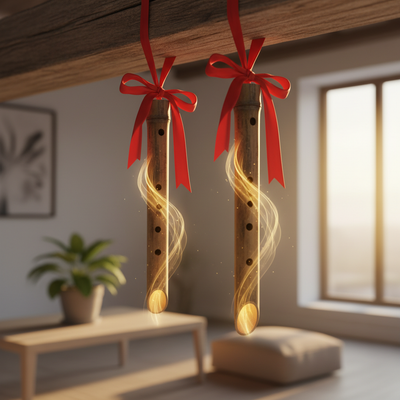
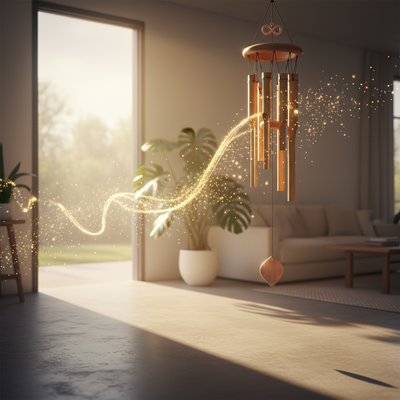
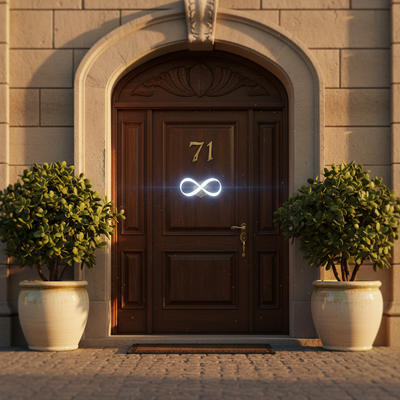
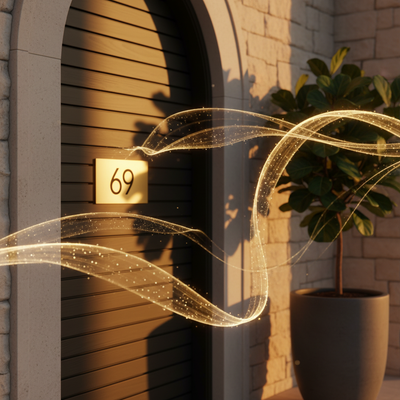
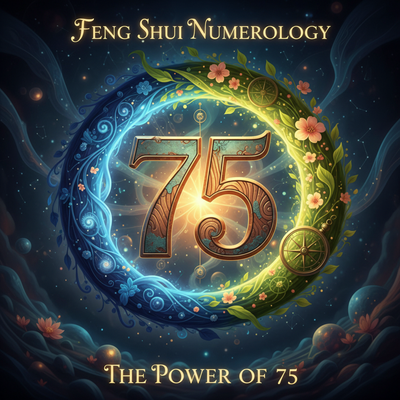
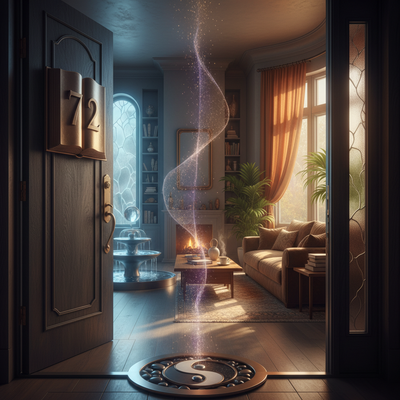
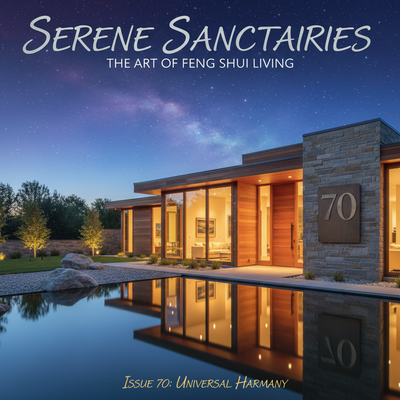
0 comments